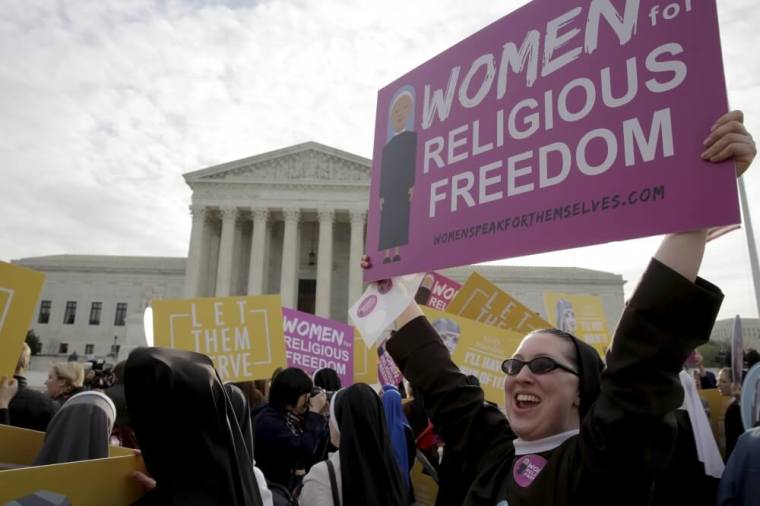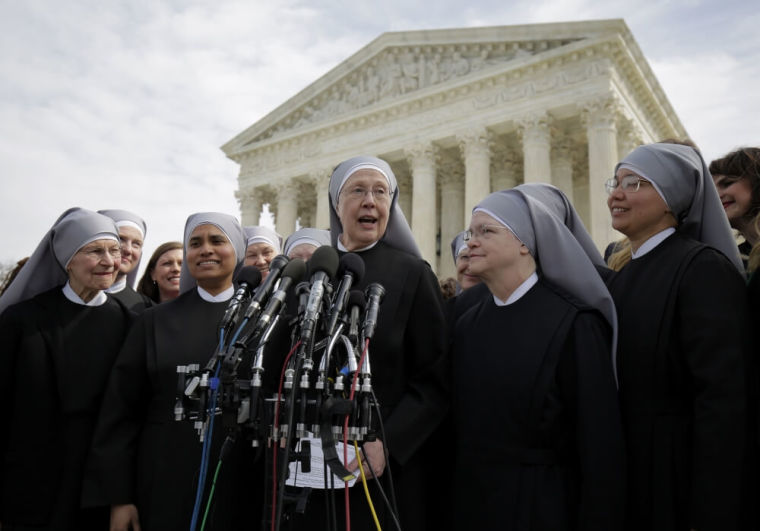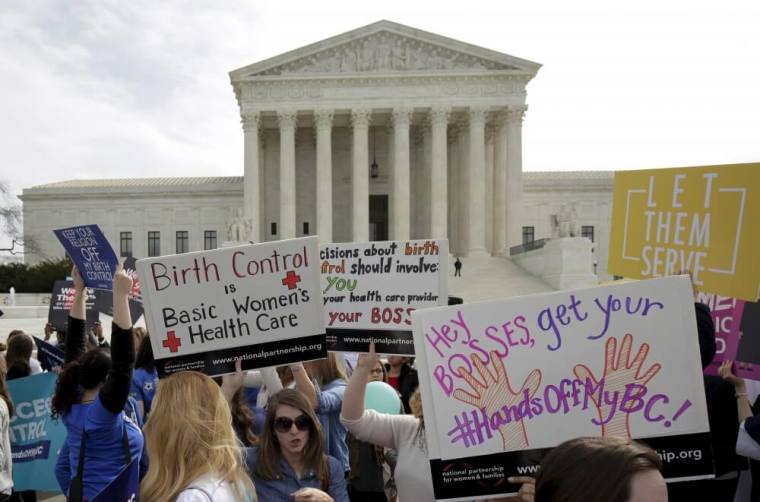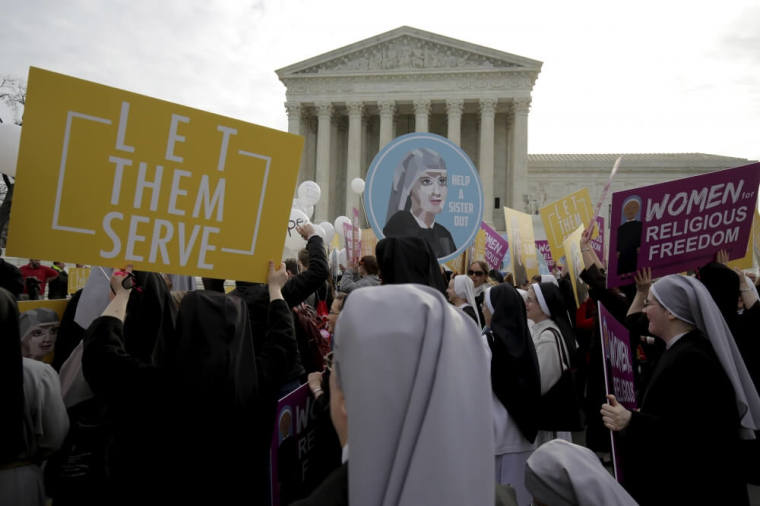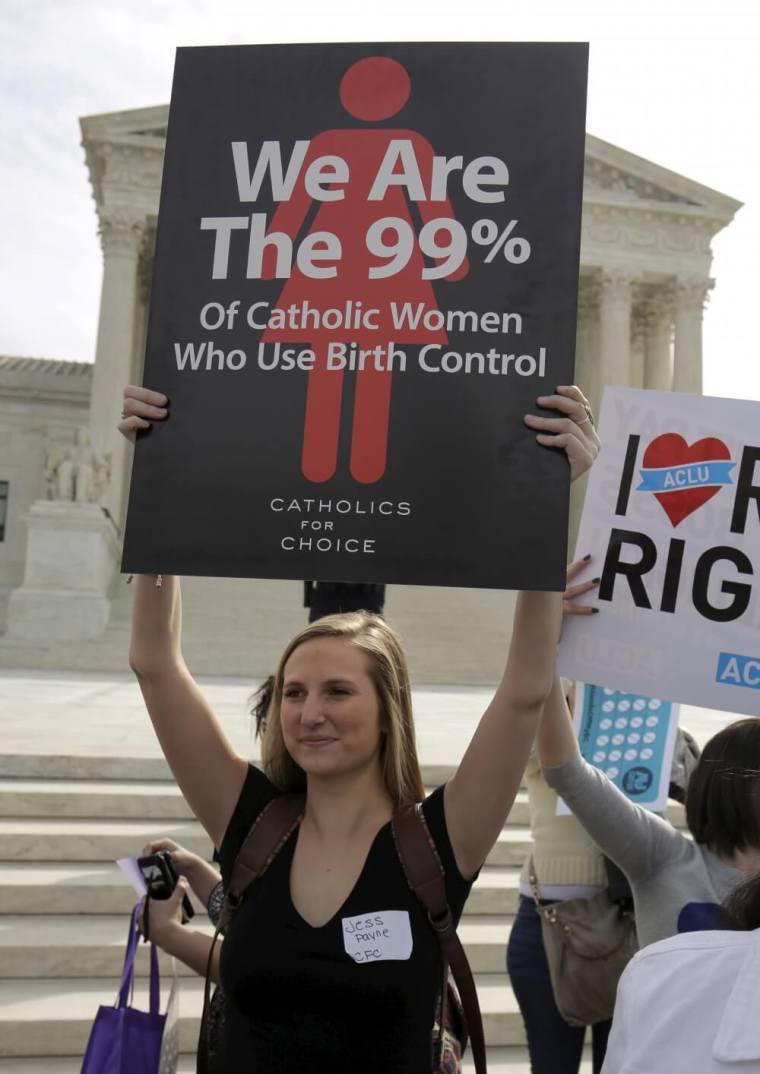Obama Is 'Hijacking' Nuns' Healthcare Plans, Justice Kennedy Asserts at Supreme Court Arguments
The U.S. Supreme Court heard arguments Wednesday in a case that will determine whether or not an order of Catholic nuns and over 30 other religious nonprofits will have to comply with an Obamacare contraception mandate that the organizations claim will make them complicit in violating their religious beliefs.
At the forefront of Zubik v. Burwell is the Little Sisters of the Poor, an order of Catholic nuns who care for the elderly, which holds that it is in violation of the Catholic faith to abide by the Obamacare contraceptive mandate to supply abortion inducing drugs and birth control coverage in the insurance plans of their employees.
As fines upwards of $70 million could be levied on the Little Sisters for not complying with the mandate, the nation's highest court must address whether or not the contraceptive mandate violates the religious liberty of the organizations and the Religious Freedom Restoration Act of 1993.
With the recent passing of the late Justice Antonin Scalia, the court is now down to four liberals, three conservatives and the perennial swing vote, Justice Anthony Kennedy.
Should the court reach a 4-4 split in its decision, lower court rulings will be upheld. A split would mean that the Little Sisters will have won their case. But since eight of the nine appeals courts in the U.S. have ruled against petitioners on this issue, many of the organizations involved in the case would be forced to comply with the mandate.
Should Kennedy side with the liberals, the petitioners will most likely lose their case, as indications are that all four liberals on the court will side with Obama administration's argument.
The administration's main argument is that the Department of Health and Human Services has already supplied the religious organizations with an accommodation that will allow the nonprofits to opt out of paying for the abortifacients and birth control in health plans.
But under the accomodation, those organizations must allow the government to ensure that their health insurers are paying for the contested coverage. The organizations maintain that the accommodation still makes them complicit in their employees receiving those drugs.
Politico reports that Kennedy seemed split during the arguments.
At one point, Kennedy told U.S. Solicitor General Donald Verrilli that the HHS accommodation seems like the government is "hijacking" the organization's health plans to provide the coverage rather than finding other ways that don't involve the organizations at all.
"If it's so free, why can't they just get it through another plan?" Kennedy was quoted as asking.
Kennedy, however, also suggested that larger institutions, such as universities, should not be exempt from the mandate in the same manner that smaller institutions like Little Sisters should.
"It's a very difficult thing for this court to write an opinion where if you have a religious exception, you have to treat a university the same," Kennedy said. "I just find that very difficult to write."
Meanwhile, Chief Justice John Roberts argued that the government's accommodation was more of a "hijacking" than an accommodation.
"Hijacking — it seems to me that's an accurate description of what the government wants to do," Roberts said.
"It's a question of who does the paperwork," Roberts added. "In one case, it's an administrative burden. In the other case, it's a violation of a basic principle of faith."
Paul Clement, an attorney who argued on behalf of the Little Sisters, told the court that the administration's accommodation turns the institution into "conscientious collaborator," instead of a "conscientious objector."
"My clients do not object to objecting," Clement said. "My clients would like to be a conscientious objector. The government is insisting that they be a conscientious collaborator."
Mark Rienzi, a lawyer with the Becket Fund for Religious Liberty who also represents the Little Sisters, said in a statement shared with The Christian Post that there are other ways for the government to deliver the coverage without making the organization complicit.
"The government has many ways to deliver its services without using the Little Sisters of the Poor — alternatives that it says are as easy to use as shopping on Amazon or Kayak, and which it has already extended to millions of Americans," Rienzi said. "Yet the government admitted today that it is forcing the Sisters to violate their sincerely held beliefs. That's wrong and unnecessary."
Sister Loraine Marie Maguire, mother provincial for the Little Sisters of the Poor, spoke outside of the Supreme Court building after the court hearing ended and wondered why the government it is forcing this mandate on the order when over one-third of Americans are not covered by the mandate.
"We don't understand why the government is doing this when there is an easy solution that doesn't involve us — it can provide these services on the exchanges," she said. "It's also hard to understand why the government is doing this when one-third of all Americans aren't even covered by this mandate, and large corporations like Exxon, Visa, and Pepsi are fully exempt, yet the government threatens us with fines of $70 million per year if we don't comply."
Ashley Maguire, senior fellow with The Catholic Association, said in a statement to CP that Kennedy and Roberts were right to assert that the government is "hijacking" the institution's healthcare plans.
"That's exactly what they are doing," Maguire stated. "As a Catholic woman, I was proud to stand with the Little Sisters in their fight against government bullies for religious liberty."
According to Politico, the court could decide to hold the case for a rehearing until a ninth justice is confirmed in order to avoid a split decision that will cause conflicting circuit rulings.










